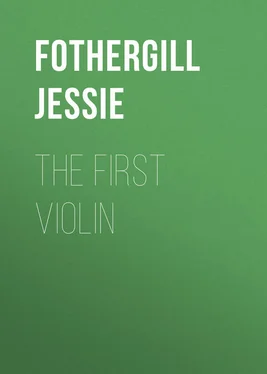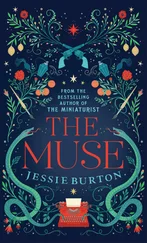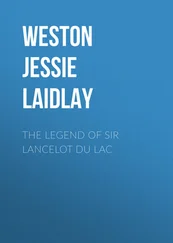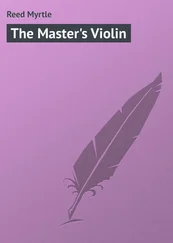Jessie Fothergill - The First Violin
Здесь есть возможность читать онлайн «Jessie Fothergill - The First Violin» — ознакомительный отрывок электронной книги совершенно бесплатно, а после прочтения отрывка купить полную версию. В некоторых случаях можно слушать аудио, скачать через торрент в формате fb2 и присутствует краткое содержание. Жанр: foreign_antique, foreign_prose, foreign_sf, на английском языке. Описание произведения, (предисловие) а так же отзывы посетителей доступны на портале библиотеки ЛибКат.
- Название:The First Violin
- Автор:
- Жанр:
- Год:неизвестен
- ISBN:нет данных
- Рейтинг книги:4 / 5. Голосов: 1
-
Избранное:Добавить в избранное
- Отзывы:
-
Ваша оценка:
- 80
- 1
- 2
- 3
- 4
- 5
The First Violin: краткое содержание, описание и аннотация
Предлагаем к чтению аннотацию, описание, краткое содержание или предисловие (зависит от того, что написал сам автор книги «The First Violin»). Если вы не нашли необходимую информацию о книге — напишите в комментариях, мы постараемся отыскать её.
The First Violin — читать онлайн ознакомительный отрывок
Ниже представлен текст книги, разбитый по страницам. Система сохранения места последней прочитанной страницы, позволяет с удобством читать онлайн бесплатно книгу «The First Violin», без необходимости каждый раз заново искать на чём Вы остановились. Поставьте закладку, и сможете в любой момент перейти на страницу, на которой закончили чтение.
Интервал:
Закладка:
“Does Herr Courvoisier, a musiker, live here?”
“ Ja wohl! ” answered the young woman, with a look of still greater surprise. “On the third étage , straight upstairs. The name is on the door.”
I turned away, and went slowly up the steep wooden uncarpeted staircase. On the first landing a door opened at the sound of my footsteps, and a head was popped out – a rough, fuzzy head, with a pale, eager-looking face under the bush of hair.
“Ugh!” said the owner of this amiable visage, and shut the door with a bang. I looked at the plate upon it; it bore the legend, “Hermann Duntze, Maler.” To the second étage . Another door – another plate: “Bernhardt Knoop, Maler.” The house seemed to be a resort of artists. There was a lamp burning on each landing; and now, at last, with breath and heart alike failing, I ascended the last flight of stairs, and found myself upon the highest étage before another door, on which was roughly painted up, “Eugen Courvoisier.” I looked at it with my heart beating suffocatingly. Some one had scribbled in red chalk beneath the Christian name, “Prinz Eugen, der edle Ritter.” Had it been done in jest or earnest? I wondered, and then knocked. Such a knock!
“ Herein! ”
I opened the door, and stepped into a large, long, low room. On the table, in the center, burned a lamp, and sitting there, with the light falling upon his earnest young face, was Helfen, the violinist, and near to him sat Courvoisier, with a child upon his knee, a little lad with immense dark eyes, tumbled black hair, and flushed, just awakened face. He was clad in his night-dress and a little red dressing-gown, and looked like a spot of almost feverish, quite tropic brightness in contrast with the grave, pale face which bent over him. Courvoisier held the two delicate little hands in one of his own, and was looking down with love unutterable upon the beautiful, dazzling child-face. Despite the different complexion and a different style of feature too, there was so great a likeness in the two faces, particularly in the broad, noble brow, as to leave no doubt of the relationship. My musician and the boy were father and son.
Courvoisier looked up as I came in. For one half moment there leaped into his eyes a look of surprise and of something more. If it had lasted a second longer I could have sworn it was welcome – then it was gone. He rose, turned the child over to Helfen, saying, “One moment, Friedel,” then turned to me as to some stranger who had come on an errand as yet unknown to him, and did not speak. The little one, from Helfen’s knee, stared at me with large, solemn eyes, and Helfen himself looked scarcely less impressed.
I have no doubt I looked frightened – I felt so – frightened out of my senses. I came tremulously forward, and offering my pieces of silver, said, in the smallest voice which I had ever used:
“I have come to pay my debt. I did not know where you lived, or I should have done it long before.”
He made no motion to take the money, but said – I almost started, so altered was the voice from that of my frank companion at Köln, to an icy coldness of ceremony:
“ Mein Fräulein , I do not understand.”
“You – you – the things you paid for. Do you not remember me?”
“Remember a lady who has intimated that she wishes me to forget her? No, I do not.”
What a horribly complicated revenge! thought I, as I said, ever lower and lower, more and more shamedfacedly, while the young violinist sat with the child on his knee, and his soft brown eyes staring at me in wonder:
“I think you must remember. You helped me at Köln, and you paid for my ticket to Elberthal, and for something that I had at the hotel. You told me that was what I owed you.”
I again tendered the money; again he made no effort to receive it, but said:
“I am sorry that I do not understand to what you refer. I only know it is impossible that I could ever have told you you owed me three thalers, or three anything, or that there could, under any circumstances, be any question of money between you and me. Suppose we consider the topic at an end.”
Such a voice of ice, and such a manner, to chill the boldest heart, I had never yet encountered. The cool, unspeakable disdain cut me to the quick.
“You have no right to refuse the money,” said I, desperately. “You have no right to insult me by – by – ” An appropriate peroration refused itself.
Again the sweet, proud, courteous smile; not only courteous, but courtly; again the icy little bow of the head, which would have done credit to a prince in displeasure, and which yet had the deference due from a gentleman to a lady.
“You will excuse the semblance of rudeness which may appear if I say that if you unfortunately are not of a very decided disposition, I am. It is impossible that I should ever have the slightest intercourse with a lady who has once unequivocally refused my acquaintance. The lady may honor me by changing her mind; I am sorry that I can not respond. I do not change my mind.”
“You must let us part on equal terms,” I reiterated. “It is unjust – ”
“Yourself closed all possibility of the faintest attempt at further acquaintance, mein Fräulein . The matter is at an end.”
“Herr Courvoisier, I – ”
“At an end,” he repeated, calmly, gently, looking at me as he had often looked at me since the night of “Lohengrin,” with a glance that baffled and chilled me.
“I wish to apologize – ”
“For what?” he inquired, with the faintest possible look of indifferent surprise.
“For my rudeness – my surprise – I – ”
“You refer to one evening at the opera. You exercised your privilege, as a lady, of closing an acquaintance which you did not wish to renew. I now exercise mine, as a gentleman, of saying that I choose to abide by that decision, now and always.”
I was surprised. Despite my own apologetic frame of mind, I was surprised at his hardness; at the narrowness and ungenerosity which could so determinedly shut the door in the face of an humble penitent like me. He must see how I had repented the stupid slip I had made; he must see how I desired to atone for it. It was not a slip of the kind one would name irreparable, and yet he behaved to me as if I had committed a crime; froze me with looks and words. Was he so self-conscious and so vain that he could not get over that small slight to his self-consequence, committed in haste and confusion by an ignorant girl? Even then, even in that moment I asked myself these questions, my astonishment being almost as great as my pain, for it was the very reverse, the very opposite of what I had pictured to myself. Once let me see him and speak to him, I had said to myself, and it would be all right; every lineament of his face, every tone of his voice, bespoke a frank, generous nature – one that could forgive. Alas! and alas! this was the truth!
He had come to the door; he stood by it now, holding it open, looking at me so courteously, so deferentially, with a manner of one who had been a gentleman and lived with gentlemen all his life, but in a way which at the same time ordered me out as plainly as possible.
I went to the door. I could no longer stand under that chilling glance, nor endure the cool, polished contempt of the manner. I behaved by no means heroically; neither flung my head back, nor muttered any defiance, nor in any way proved myself a person of spirit. All I could do was to look appealingly into his face; to search the bright, steady eyes, without finding in them any hint of softening or relenting.
“Will you not take it, please?” I asked, in a quivering voice and with trembling lips.
“Impossible, mein Fräulein ,” with the same chilly little bow as before.
Читать дальшеИнтервал:
Закладка:
Похожие книги на «The First Violin»
Представляем Вашему вниманию похожие книги на «The First Violin» списком для выбора. Мы отобрали схожую по названию и смыслу литературу в надежде предоставить читателям больше вариантов отыскать новые, интересные, ещё непрочитанные произведения.
Обсуждение, отзывы о книге «The First Violin» и просто собственные мнения читателей. Оставьте ваши комментарии, напишите, что Вы думаете о произведении, его смысле или главных героях. Укажите что конкретно понравилось, а что нет, и почему Вы так считаете.












